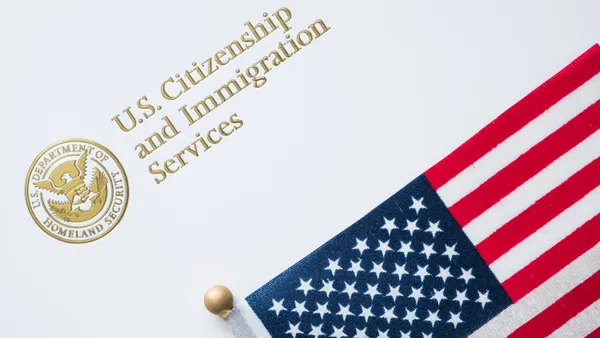Dive Brief:
- The U.S. Department of Labor (DOL) is concerned that Google's confidentiality policies are discouraging employees from reporting discriminatory conduct, says The Guardian. Google employees report feeling intimidated by the company's rules on protecting its proprietary information, government officials told The Guardian.
- Confidentiality agreements are common in the tech industry, as companies try to protect their trade secrets from competitors. But government officials said that Google's confidentiality policies dissuade workers from reporting unfair pay practices and other discriminatory actions. Google said in a statement that nothing in its policies prevents employees from talking about such issues.
- In a separate case, the National Labor Relations Board (NLRB) filed a complaint against Google alleging that the company's confidentiality rules violate employees' rights. The company is charged with threatening to fire employees for engaging in "protected, concerted activity," as described under the law.
Dive Insight:
Wanting to protect proprietary information is understandable and in the competitive, ever-evolving tech industry, it's critical. But employers must protect their trade secrets without violating employees' rights.
A product manager sued the tech giant in late 2016 for running what he called a "spying program" designed to make sure employees weren't leaking proprietary information to competitors or authorities. He claimed that Google's confidentiality policy violates California labor law. The company could face $3.8 billion in damages if found liable in that case.
In January, DOL sued Google, a federal contractor, for refusing to open up its compensation records and data to the Office of Federal Contractor Compliance Programs (OFCCP) for a routine equal employment opportunity (EEO) audit. Google argues that it complied with much of the OFCCP's request except for information on employees it viewed as too intrusive. Although a DOL administrative judge agreed that the department's request for pay data was "unreasonable" — a win for Google — the company did still have to hand over some documents in the investigation.
Google is a prominent name in the tech industry, which struggles with diversity hiring and allegedly fosters gender-based pay disparity. And while Google has escaped some of the more drastic sexual harassment problems dogging companies like Uber, the issues at Google — which sees itself as a quick innovator despite its size — could reveal deeply entrenched maladies within the tech industry overall. The balancing act concerning company secrets is certainly something that will likely be examined more in coming years.












